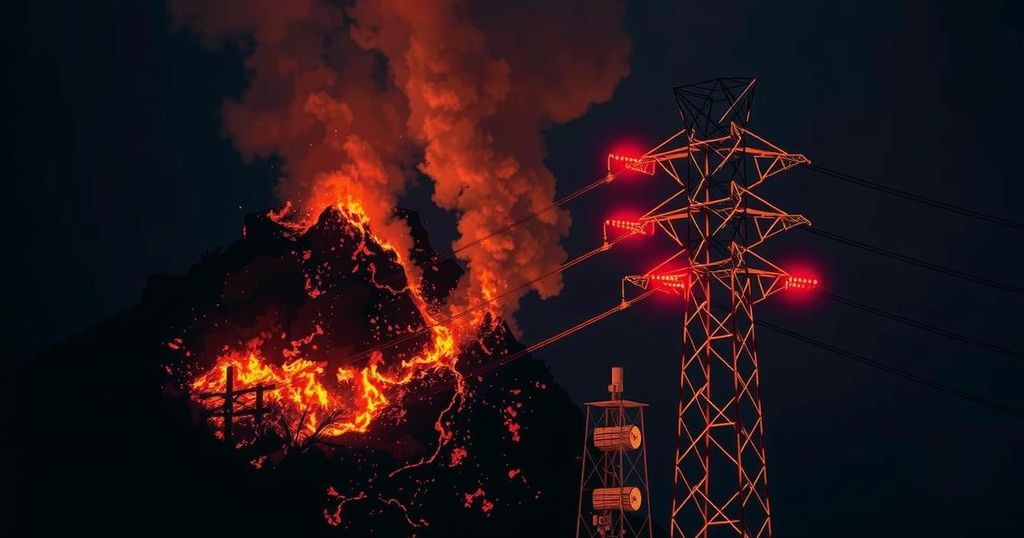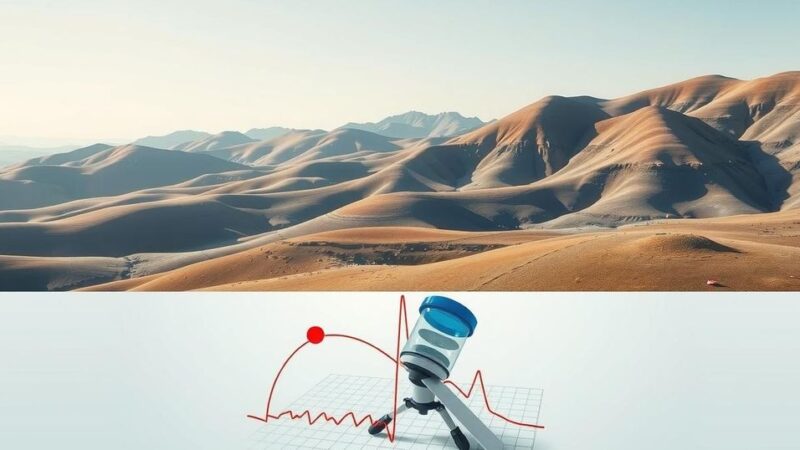On Sunday night, Zimbabwe and Zambia faced simultaneous nationwide blackouts due to a power surge from the transmission lines connected to Eskom in South Africa. Restoration efforts led to power recovery by early Monday morning in Zimbabwe, where most areas had electricity restored by 3 AM. The incident highlights ongoing energy crises in both countries that rely significantly on shared resources.
Zimbabwe and Zambia experienced severe nationwide blackouts on Sunday night, primarily attributed to a surge in the power lines connecting them to South Africa’s Eskom utility. The outages in Zambia commenced at 8:15 PM, followed shortly by Zimbabwe at 8:25 PM. The Zimbabwe Electricity Supply Authority (ZESA) confirmed the occurrence, indicating that the national grid faced a disturbance, while Zambia’s ZESCO reported similar issues leading to a complete power failure across the nation.
Efforts to restore power commenced promptly after the outages, with ZESA announcing notable progress by early Monday morning. By 3 AM, power had been restored in most areas of Zimbabwe, offering relief to residents who had endured a prolonged darkness. The disturbances were reportedly triggered by fluctuations in the transmission lines from South Africa, a critical source of electricity for both countries, particularly as Zambia grapples with a severe power deficit and has increased its imports from Eskom.
The ongoing blackouts highlight the persistent power generation challenges plaguing both nations. The Kariba hydroelectric plant, crucial to their energy supply, is currently operating at reduced capacity due to low water levels. In Zimbabwe, outdated thermal power stations frequently fail, leading to power cuts that can last up to 18 hours. Similarly, Zambia faces difficulties in meeting energy demand, frequently interrupting daily life and business operations. The incident on Sunday emphasizes the fragile state of the regional power infrastructure and the necessity for both countries to enhance grid resilience and diversify their energy sources as they confront ongoing energy crises.
The recent blackouts in Zimbabwe and Zambia stem from systemic challenges related to the dependency on shared power resources and the infrastructural vulnerabilities that accompany such reliance. Both nations import significant amounts of electricity from South Africa’s Eskom, subjected to fluctuations that can trigger widespread outages. Given the ongoing low water conditions affecting hydroelectric generation at the Kariba plant and the aging thermal facilities in Zimbabwe, the energy crisis remains a pressing issue, necessitating immediate and long-term solutions to stabilize their electricity supply.
In summary, the simultaneous blackouts experienced by Zimbabwe and Zambia reflect critical vulnerabilities within their shared energy infrastructure, a situation exacerbated by both climatic and systemic challenges. The rapid restoration efforts by ZESA represent a commendable response; however, both nations must prioritize building a more resilient and diversified energy strategy to avert future occurrences of such disruptive blackouts. Continuing reliance on a single source poses a significant risk, one that can only be mitigated through comprehensive reforms and infrastructural upgrades.
Original Source: bulawayo24.com






